Abstract
OBJECTIVE: To describe the relationship between the quality of care provided by family and general practitioners in Ontario and the demographics of the practitioners. DESIGN: Descriptive study using univariate and multivariate analysis to relate physician demographics to quality of care. SETTING: Ambulatory family and general practices in Ontario. PARTICIPANTS: Each year from 1990 to 1994, all non-specialist physicians in Ontario reaching 70 years of age and a random sample of physicians younger than 70 who had been in practice more than 5 years were selected for assessment. After exclusion criteria were applied, the sample size was 922 physicians. MAIN OUTCOME MEASURES: Grades assigned by the College of Physicians and Surgeons of Ontario's Peer Assessment Committee. RESULTS: Practices were assessed and graded by the Peer Assessment Committee. Grades were related to many variables, but many variables were correlated. Four variables remained significant at the P < .05 level. Younger physicians, female physicians, certificates of the College of Family Physicians of Canada, and urban physicians had, on average, higher grades. CONCLUSION: Grades reflecting quality of care and record keeping were significantly associated with age, sex, certification status, and practice location. These findings should be examined and, for the benefit of patients, methods for improving care should be developed and explored.
Full text
PDF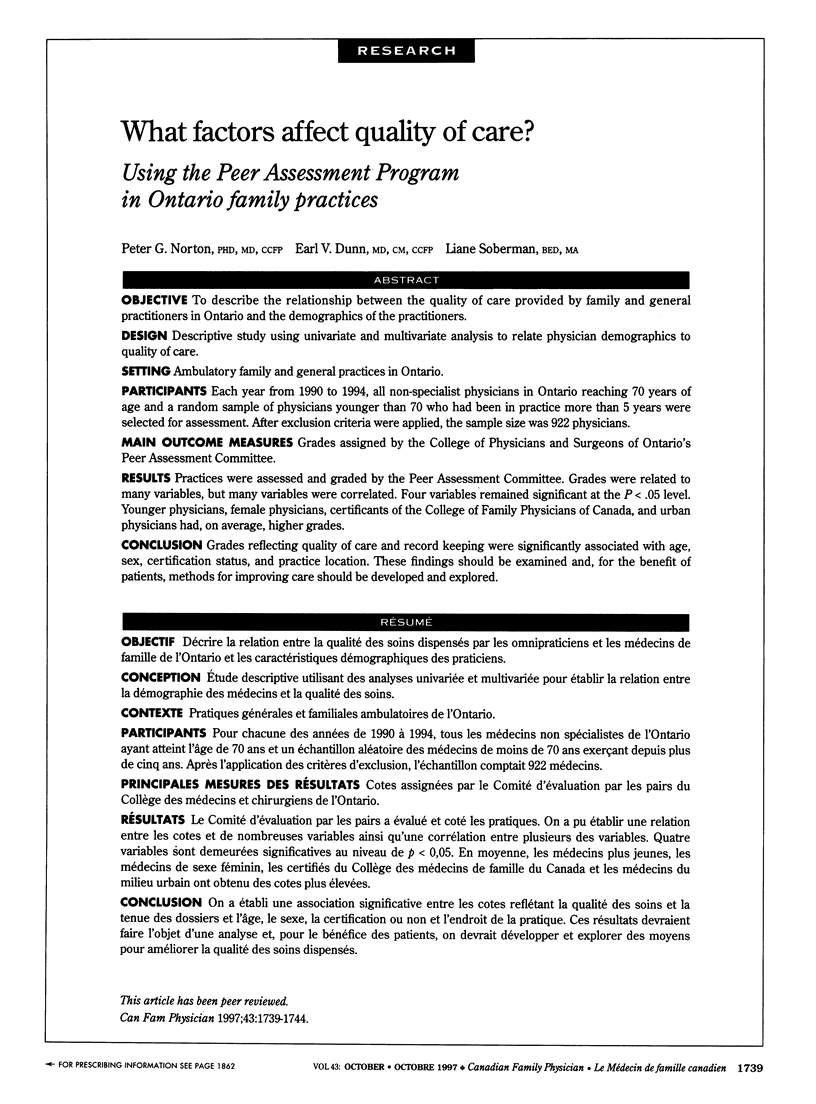
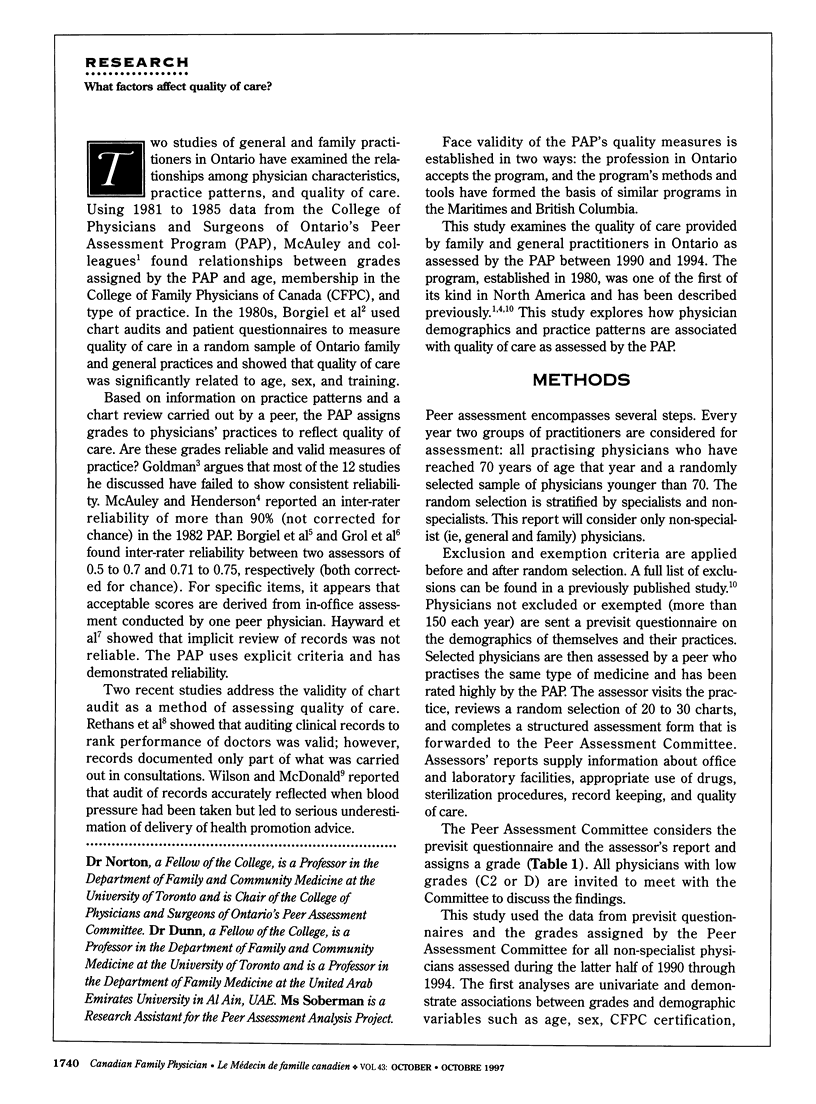
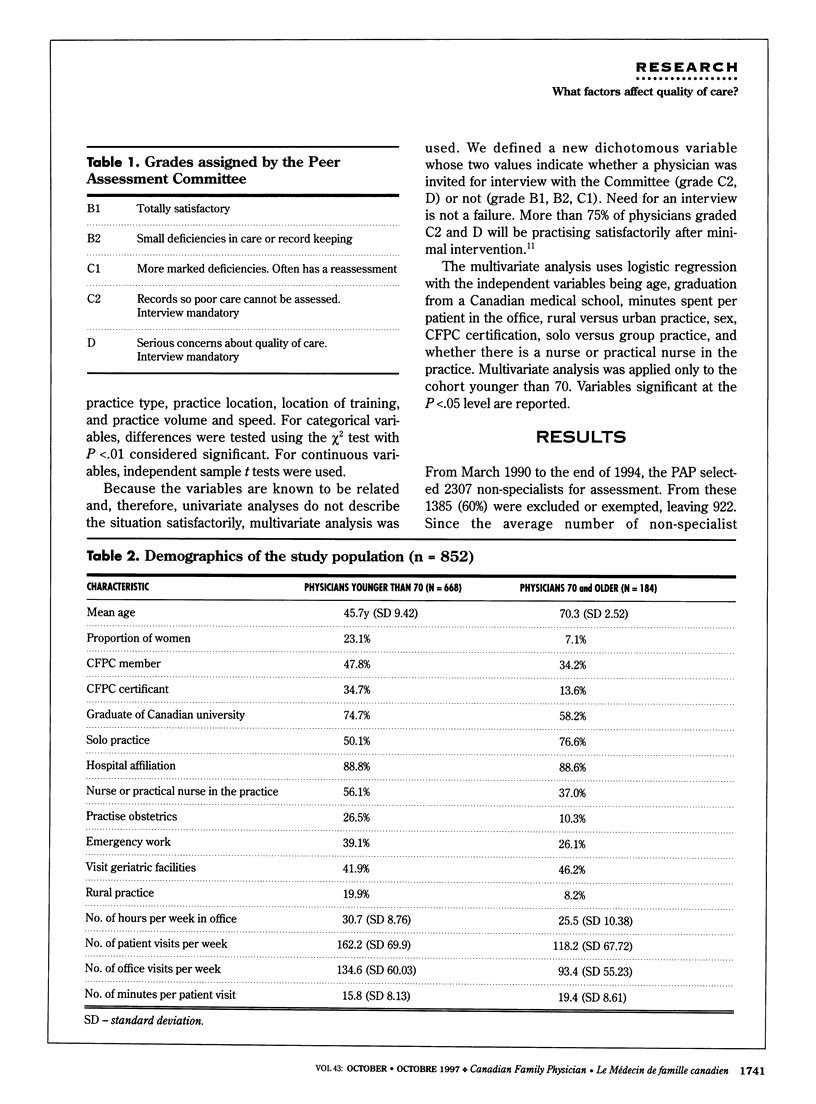
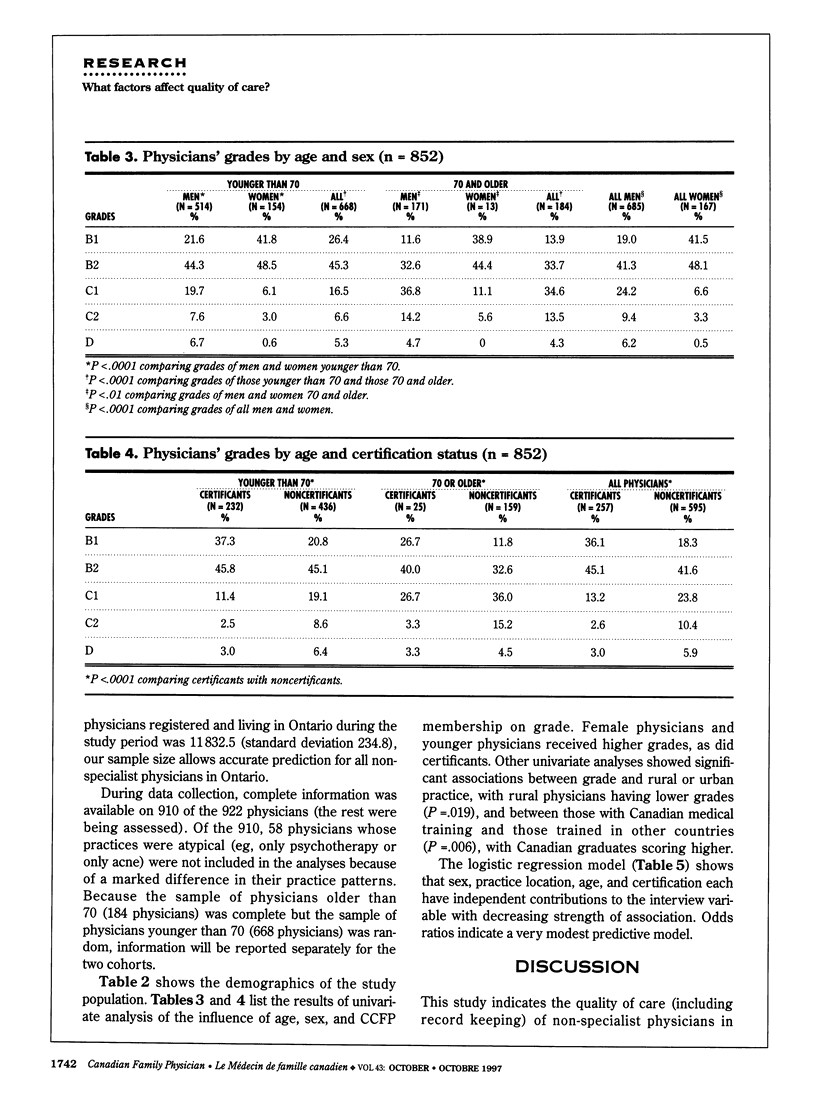
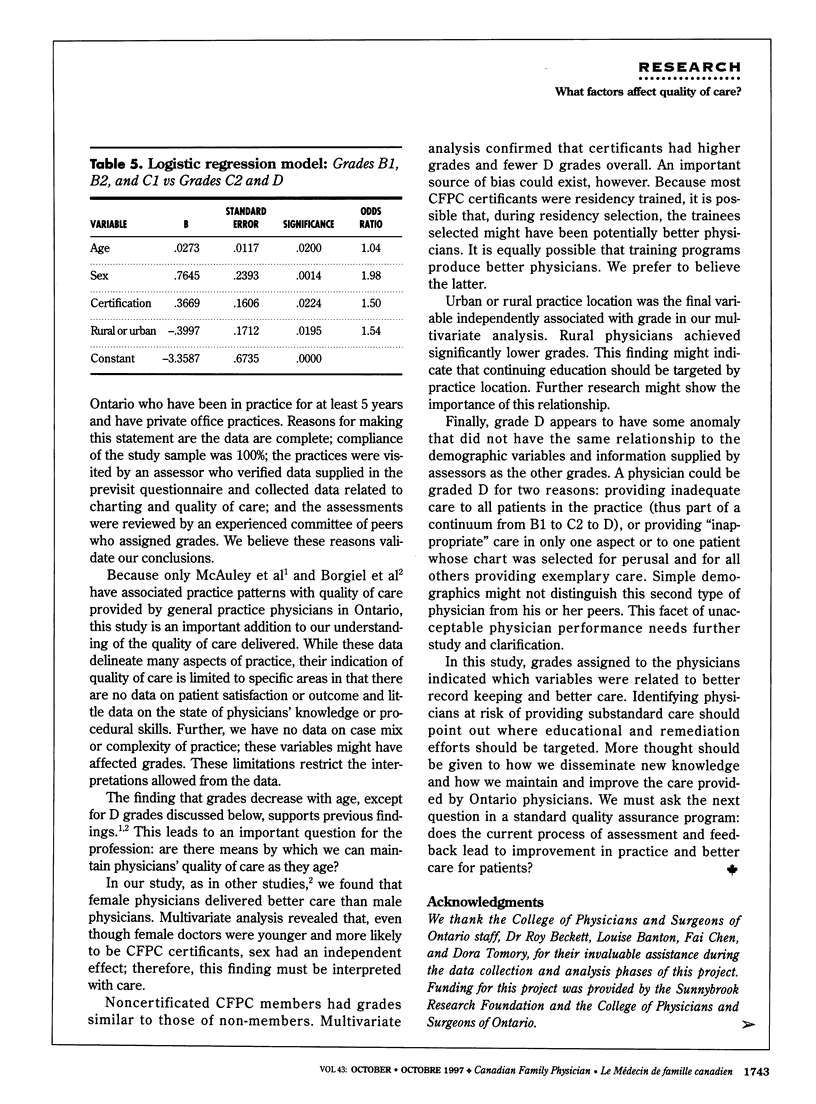
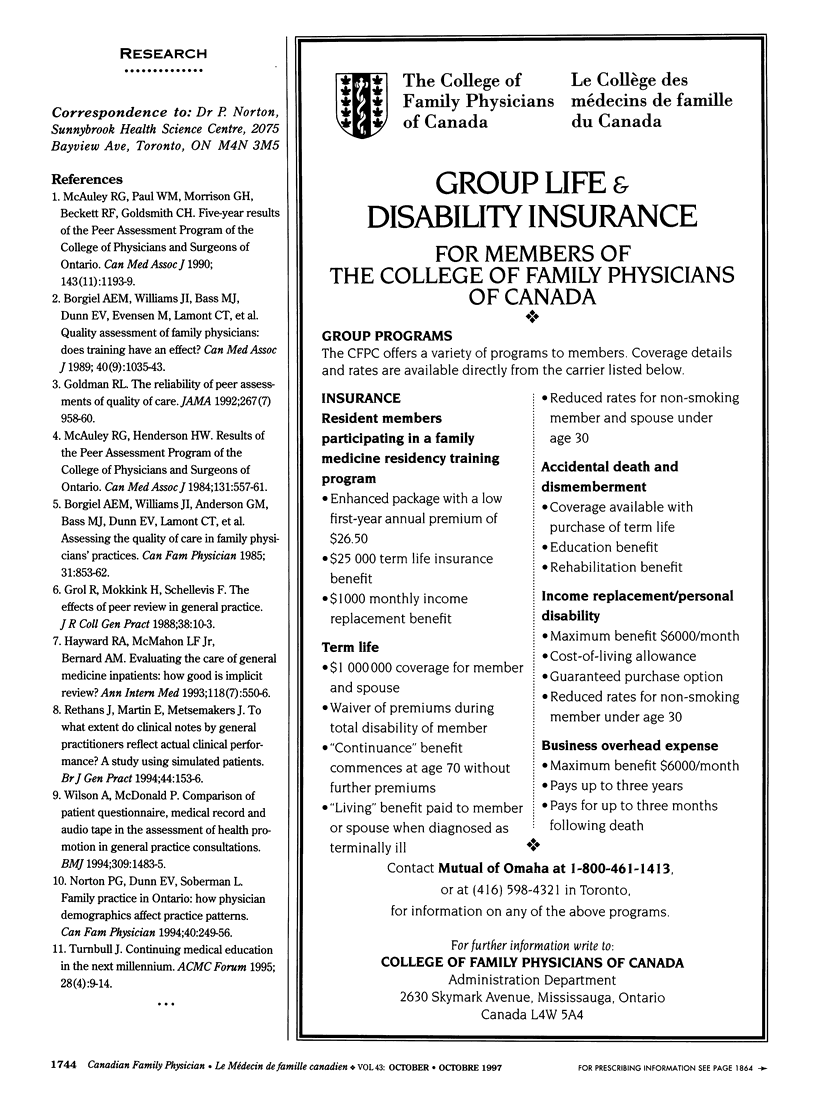
Selected References
These references are in PubMed. This may not be the complete list of references from this article.
- Borgiel A. E., Williams J. I., Bass M. J., Dunn E. V., Evensen M. K., Lamont C. T., MacDonald P. J., McCoy J. M., Spasoff R. A. Quality of care in family practice: does residency training make a difference? CMAJ. 1989 May 1;140(9):1035–1043. [PMC free article] [PubMed] [Google Scholar]
- Goldman R. L. The reliability of peer assessments of quality of care. JAMA. 1992 Feb 19;267(7):958–960. [PubMed] [Google Scholar]
- Grol R., Mokkink H., Schellevis F. The effects of peer review in general practice. J R Coll Gen Pract. 1988 Jan;38(306):10–13. [PMC free article] [PubMed] [Google Scholar]
- Hayward R. A., McMahon L. F., Jr, Bernard A. M. Evaluating the care of general medicine inpatients: how good is implicit review? Ann Intern Med. 1993 Apr 1;118(7):550–556. doi: 10.7326/0003-4819-118-7-199304010-00010. [DOI] [PubMed] [Google Scholar]
- McAuley R. G., Henderson H. W. Results of the peer assessment program of the College of Physicians and Surgeons of Ontario. Can Med Assoc J. 1984 Sep 15;131(6):557–561. [PMC free article] [PubMed] [Google Scholar]
- McAuley R. G., Paul W. M., Morrison G. H., Beckett R. F., Goldsmith C. H. Five-year results of the peer assessment program of the College of Physicians and Surgeons of Ontario. CMAJ. 1990 Dec 1;143(11):1193–1199. [PMC free article] [PubMed] [Google Scholar]
- Norton P. G., Dunn E. V., Soberman L. Family practice in Ontario. How physician demographics affect practice patterns. Can Fam Physician. 1994 Feb;40:249–256. [PMC free article] [PubMed] [Google Scholar]
- Rethans J. J., Martin E., Metsemakers J. To what extent do clinical notes by general practitioners reflect actual medical performance? A study using simulated patients. Br J Gen Pract. 1994 Apr;44(381):153–156. [PMC free article] [PubMed] [Google Scholar]
- Wilson A., McDonald P. Comparison of patient questionnaire, medical record, and audio tape in assessment of health promotion in general practice consultations. BMJ. 1994 Dec 3;309(6967):1483–1485. doi: 10.1136/bmj.309.6967.1483. [DOI] [PMC free article] [PubMed] [Google Scholar]


